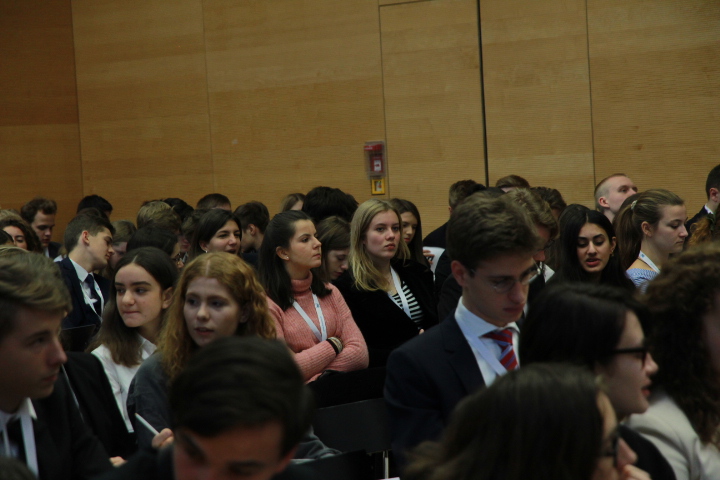IMPLEMENTING EFFICIENT DEMOCRACY IN EX-DICTATORSHIPS
The debate took place during lunchtime, meaning that the room was half-empty as the Spanish delegate of GA4 stood up and made his speech in favour of his resolution, co-submitted by Spain and Somalia. The resolution proposed dealt with the issue of challenges of equality in new democracies (ex-dictatorships). The resolution encourages a "higher involvement of women and ethnic minorities in social and political activities" as well as "compulsory voting for the population" to which they would impose a sanction if citizens did not cast a vote.
Although there are examples of countries where compulsory voting is implemented (such as Australia and Belgium), this particular measure and policy tool to ensure political participation raises fundamental questions about the nature of democracy. As the Russian Federation aptly pointed out, this compulsory voting measure was "highly undemocratic" and contradicted the basis of democracy- "freedom of choice" - as it robbed voters of the option to not vote - ie: express political apathy. It is commonly known that refusing to vote, or boycotting an election, is a form of political protest. However, the Spanish delegate replied by saying that on most ballots, casting a blank vote is perfectly acceptable.

The issue of compulsory voting also raised questions about certain religious or cultural factors that prevent certain people from voting. Religion in some areas, for example, prohibits women from voting. How would the resolution affect this and to what extent is religion more important than the right to vote? This was debated for almost half an hour, but there was no conclusion to the discussion.
Several delegates from emerging and LEDCs spoke in favour of this resolution (Iran, Iraq, Somalia and Turkey) indicating a general sense of support for the resolution which proposed measures to improve the effectiveness and efficiency of the democratic political system in countries where democracy is still in early days or the country is in a stage of transition.
Thailand spoke against the resolution, arguing that democracy should be left up to each country to form itself - which caused much conflict amongst the delegates. He also stated that democracy was "subjective" and "unique to each country", suggesting that democracy does not have an inherently objective nature to which countries should strive for. This was pointed out by delegate of Spain, who presented the counterargument that if democracy was subjective and left to each country to decide, it would lead to dictatorships justifying themselves as democracies and leaving no room for criticism of political systems.
As the placards rose in favour of the resolution, it became clear that it had passed with an overwhelming majority. Clapping was in order.
Lara Greiff
